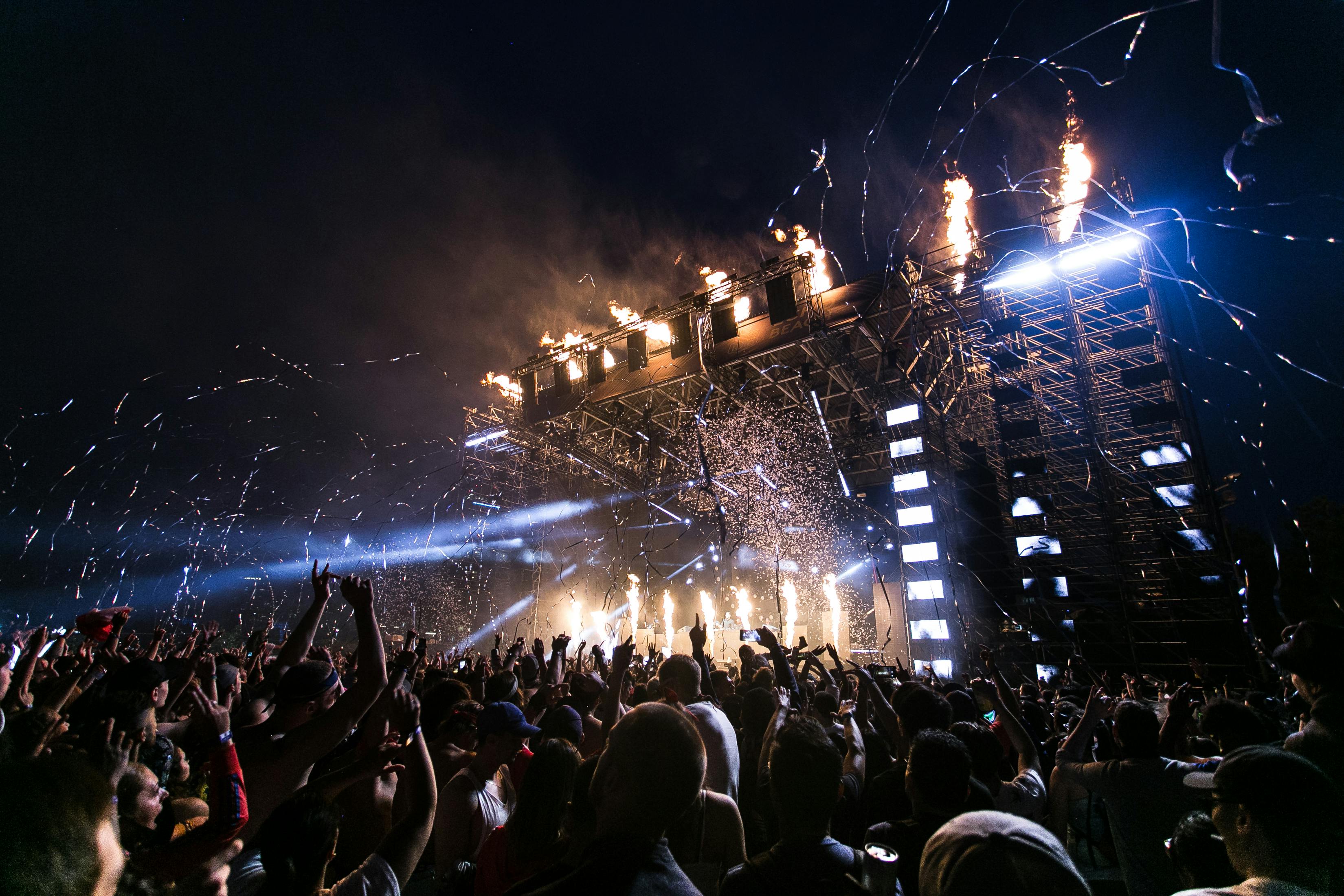Predictive Artificial Intelligence for Music Festival Site Crowd Control Planning.

Music festival organisers will do their utmost to avoid injury or worse to festival-goers attending events but incidents do still occur. With crowd surges and crushing causing the most severe injuries understanding crowd behaviour is essential. AI predictive modelling has advanced recently to the point where it can now form a key part of the festival planning process.
Organisers of large music festivals have used the services of external contractors who are experts in the design of festival sites taking into account anticipated crowd bahaviour. These services are now being enhanced with predictive AI for crowd control planning which can help identify potential risks and optimise the flow and safety of festival-goers. What can organisers do to incorporate this technology into their planning processes.
Festival Site Planning.
Many organisers now use event planning software tools like Festival Pro which can include site planning functionality. The planning process will require physical site surveys to determine the size and geographic features that need to be considered. Other factors will be the local infrastructure like access roads and the anticipated crowd size. Initial planning may include the favourable position of stages, vendor locations, camping and parking zones. Once the preliminary site layout is agreed experts in crowd control can commence modelling potential behaviour.
Capacity and Ticket Sales.
Only once the site planning process is complete should organisers consider what the safe limit on event capacity will be and this will determine the number of tickets that can be sold. Failure to accurately predict the safe capacity of a venue can severely impact on safe crowd control. Combating ticket fraud is also a key consideration as fake tickets can dramatically increase the crowd size putting organisers at a disadvantage when it comes to understanding how many festival-goers are on a site. Poor security fencing around a site can also lead to ticketless entry although this is less of problem for most festivals these days.
Data Collection.
To use predictive AI modelling organisers need to collect data and this can be vital if a festival takes place each year on the same site and the number of festival-goers is known. Ticketing and sales data can be collected at entrance gates to determine volumes and times of entry. Where festival-goers are issued with RFID/NFC wristbands it is possible to track movement patterns, entry/exit times between zones, use of vendors and cashless payments plus dwell times in different areas, providing granular insights into individual and group behavior. Other data can be accumulated form recorded CCTV feeds where advanced computer vision capabilities allow analysis of crowd density, flow speed and direction. Other sensors can be installed around a site to monitor environmental factors like temperature and noise to provide crowd density readings.
Predictive AI Assisted Modeling.
With vast amounts of historical data, it is possible to build machine learning algorithms and AI models which can predict crowd behaviour. This allows users to run different scenarios using different site layouts and numbers of people to identify potential chokepoints or overcrowding related to specific times. Understanding timing is a crucial element as crowds move when artist's sets start or end, usually to or from toilet facilities or food and beverage vendors. Planners can also run numerous scenarios that could include sudden adverse weather, artist cancellations, power failures, or aggressive crowd behaviour for example.
Real Time Crowd Control.
Even with meticulous planning it is still necessary to incorporate real time crowd management during the live festival dates. Real time monitoring that uses AI systems to produce alerts of potential risks allows organisers to take immediate action. The systems can be used to detect crowd surges and unacceptable density levels. Alerts can be linked to dynamic guidance systems which generate automated warnings to festival-goers using festival apps or digital signage to direct them away from overcrowded zones. Predictive AI can assist organisers in deploying security personnel and emergency services to specific locations to help manage dangerous situations.
Music festival organisers should consider using every tool available to them to ensure enhanced safety at their everts. No organiser wants a repeat of the disasters seen at The Love Parade in Duisburg, Germany in 2010 or more recently Astroworld in Houston 2021. In both cases experts using crowd control software after the events have accurately predicted crowd control problems using data that was available before the events took place. Although predictive AI and crowd behaviour modelling is not perfect it can be a great help to any festival organiser in their planning processes to create a safe and enjoyable event for festival-goers.
For festival organisers planning their next event using a software management platform like Festival Pro gives them all the functionality they need manage every aspect of their event logistics. The guys who are responsible for this software have been in the front line of event management for many years and the features are built from that experience and are performance artists themselves. The Festival Pro platform is easy to use and has comprehensive features with specific modules for managing artists, contractors, venues/stages, vendors, volunteers, sponsors, guestlists, ticketing, site planning, cashless payments and contactless ordering.
Image by Wendy Wei via Pexels
<< Back to articles
Contact us
Get in touch to discuss your requirements.
US: +1 424 485 0220 (USA)
UK: +44 207 060 2666 (United Kingdom)
AU: +61 (2) 8357 0793 (Australia)
NZ: +64 (0)9887 8005 (New Zealand)